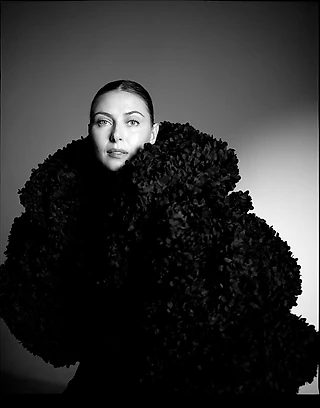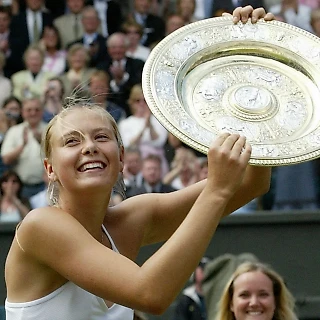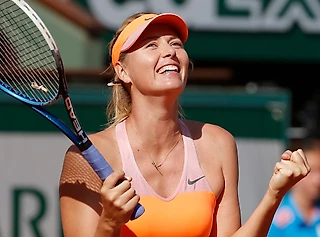12 для '12: Рассказы года
Выставил статью Бодо из его серии "12 для '12: Рассказы года"
Бодо описывает победу Марии на РГ как одно из главных событий года в женском теннисе.
Вы уже знаете что титул РГ Марии был моя мечта. И конечно я очень доволен и рад что моя мечта осуществилась. То есть что Мария сделал мою мечту реальность.Но я даже больше рад о том что Мария заставила всех своих врагов и недоброжелателей признать что они были неправы когда недооценивали ее и ее возможности в теннисе.
Поэтому сейчас я с большим удовольствием выставляю эту статью Бодо, так как он не любит Марию и всегда ищет повод написать что-то против нее. Даже когда вынужден признать достижения Марии он пытается уменьшит их значение всякими способами. И он был верен себе ив эту статью. В первую версию он написал так текста что можно было подумать что Мария проиграла Вике в Штутгарте.
И редактор был вынужден написать замечание об этом и пояснить всем что Мария победила тогда, а не Вика.
Яхуууу, Бодо! Мария чемпионка РГ и только 5 других теннисисток сумели сделать то, что сделала она! И это никто, никогда не сможет отнять Марии!
Women’s: Maria Sharapova, the Surprise Career Grand Slammer
Sharapova’s victory in the French Open was the story of the year in the women’s game because it put the Russian into an elite group of just five other Open-era women who had also completed a Career Grand Slam (by having won each of the four majors at least once).
Furthermore, Sharapova achieved that feat at a somewhat wild and turbulent time, and under unusual circumstances. She won just three titles and lost a whopping six finals (see yesterday’s post on the Runner-Ups of the Year) in 2012, yet she bagged one of the most coveted of all honors at the tournament where she has always been considered least likely to triumph.
In fact, it had been over four years since Sharapova last won a Grand Slam singles title (2008 Australian Open), and her victory at the French Open was just her fourth major overall. Although she’s just 25, it’s unlikely that she’ll be able to acquire more than that one set of those four trophies.
I don’t want to take any credit away from Sharapova, but a lot of things over which she had no control went right during her run. Going into the tournament, she had been soundly beaten by Azarenka in two finals, winning a total of just eight games in their meetings at the Australian Open and Indian Wells, before beating her in Stuttgart—a clay-court tune-up for Roland Garros.
After Stuttgart, Sharapova lost in the quarterfinals of Madrid—on a “slippery” blue-clay court that benefited her game (see above)—to the toughest No. 9 seed ever, Serena Williams. But despite that 6-1, 6-3 loss, Sharapova’s game began to click on clay. She won all her matches leading to the Rome final in straight sets, and won the title over former French Open champion Li Na in a bitter, close match, 4-6, 6-4, 7-6 (5). It gave Sharapova tremendous momentum and seasoned her for the task to come.
Sharapova was devastating right out of the blocks in Paris, losing just five games in her first three matches. Her energy spared, she survived a close three-setter with Klara Zakopalova in the fourth round, then dismissed Kaia Kanepi and Petra Kvitova with little trouble—neither woman won more than three games in any set.
Meanwhile, the women who were most capable of stopping Sharapova had all run off the rails. Serena was the victim of a shocking, first-round upset at the hands of Virginie Razzano; Agnieszka Radwanska, who had a big win over Sharapova in Miami, was out in the third round. Azarenka and Li were upset one round later, and dangerous No. 10 seed Angelique Kerber was dismissed by the unlikely finalist Sara Errani, who had never before appeared in a Grand Slam final and had won just two singles titles in her entire career before 2012.
Can you say, “serendipity?”
Sharapova handled the tricky assignment of being the overwhelming favorite against a crafty underdog with aplomb and solid nerves—can you imagine the story line had she lost?—remaining faithful to her aggressive, first-strike game despite her opponent’s considerable skill as a defender and counter-puncher.
Sharapova won, 6-3, 6-2, and by the end of that day, Errani’s moving story as a surprise finalist was eclipsed by the even more noteworthy tale of the Surprise Career Grand Slammer.
[Editor's Note: An earlier version of this story indicated that Sharapova lost to Azarenka in the Stuttgart final, when in fact Sharapova defeated Azarenka.]










